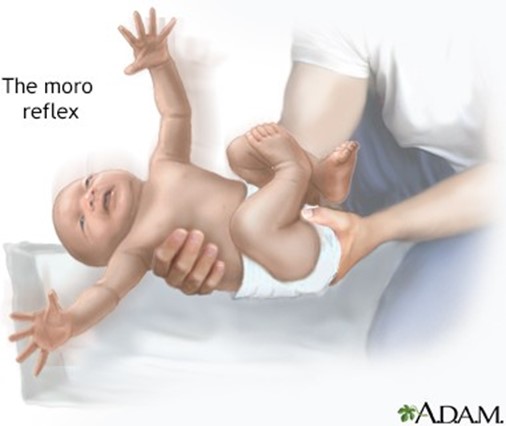A nurse is reinforcing teaching with a parent about using an iron-fortified formula to feed her newborn. Which of the following information should the nurse include in the teaching?
Iron will facilitate bone growth.
Newborns do not metabolize iron adequately.
The newborn's iron source will start to deplete.
Iron will facilitate eyesight development.
The Correct Answer is C
Choice A rationale:
Iron is crucial for the development of hemoglobin, which carries oxygen to all parts of the body, including the bones, but it does not directly facilitate bone growth.
Choice B rationale:
While newborns do metabolize iron, their iron stores are limited, and breast milk alone may not meet their iron needs.
Choice C rationale:
When educating a parent about the use of iron-fortified formula for their newborn, it is essential to convey that newborns have a limited store of iron, which begins to deplete around the age of 6 months.
Choice D rationale:
Iron facilitating eyesight development is not a relevant aspect to consider when discussing the use of iron-fortified formula for a newborn. While iron is essential for various physiological functions, it is not specifically linked to eyesight development.
Nursing Test Bank
Naxlex Comprehensive Predictor Exams
Related Questions
Correct Answer is ["A"]
Explanation
Choice A rationale:

The Moro reflex is a normal finding in newborns, including those born post-term. It is a primitive reflex that should be present and indicates a healthy neurological system.
Choice B rationale:
Vernix, a protective white substance that coats the skin in utero, is typically absent or minimal in post-term newborns due to its decreased production as gestation progresses. Therefore, it would not be expected in a post-term infant.
Choice C rationale:
Lanugo, the fine hair covering a newborn's body, is usually present in greater amounts in preterm infants. By the time a newborn is post-term, lanugo is typically sparse or absent, making it an unlikely finding.
Choice D rationale:
This maneuver assesses the flexibility of the newborn's joints. Post-term infants tend to have reduced flexibility and increased muscle tone, making this maneuver more difficult or restricted in this population.
Correct Answer is A
Explanation
"My baby will be placed under special lights if the test is elevated.”.
Choice A rationale:

This statement indicates a need for further teaching. Phenylketonuria (PKU) is a metabolic disorder that leads to the accumulation of phenylalanine in the body. If the PKU test is elevated, it means that the baby has high levels of phenylalanine, and immediate dietary intervention is required. The parent's statement about special lights suggests a confusion with jaundice treatment, which is not related to PKU.
Choice B rationale:
This statement is accurate. Before the PKU test is done, the baby needs to consume formula or breast milk to ensure accurate test results.
Choice C rationale:
This statement is also accurate. PKU is a genetic disorder that can be managed with a special diet low in phenylalanine. By adhering to the prescribed diet, the harmful effects of PKU can be minimized.
Choice D rationale:
This statement is accurate. It is common for the PKU test to be repeated at the 2-week check- up to confirm the initial results and ensure early detection and management of PKU if present.
Whether you are a student looking to ace your exams or a practicing nurse seeking to enhance your expertise , our nursing education contents will empower you with the confidence and competence to make a difference in the lives of patients and become a respected leader in the healthcare field.
Visit Naxlex, invest in your future and unlock endless possibilities with our unparalleled nursing education contents today
Report Wrong Answer on the Current Question
Do you disagree with the answer? If yes, what is your expected answer? Explain.
Kindly be descriptive with the issue you are facing.
